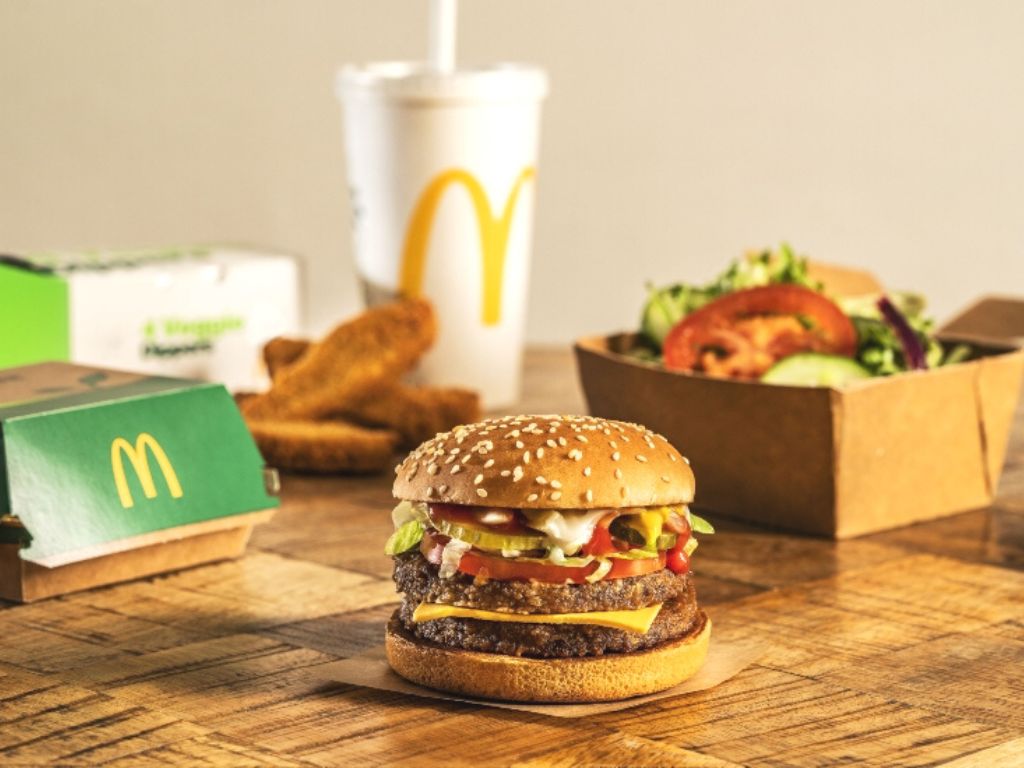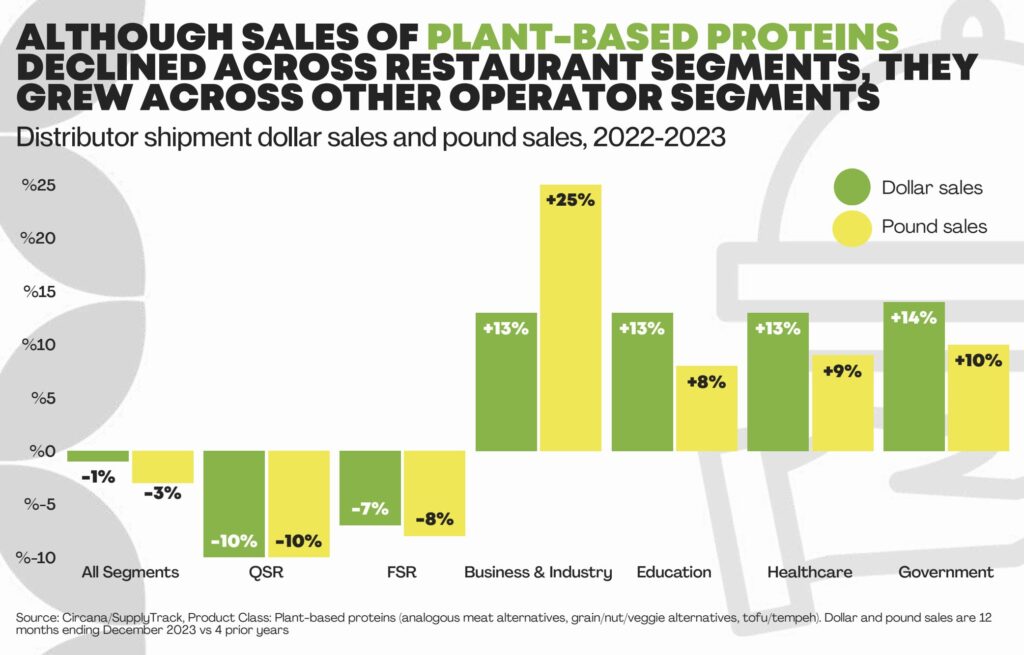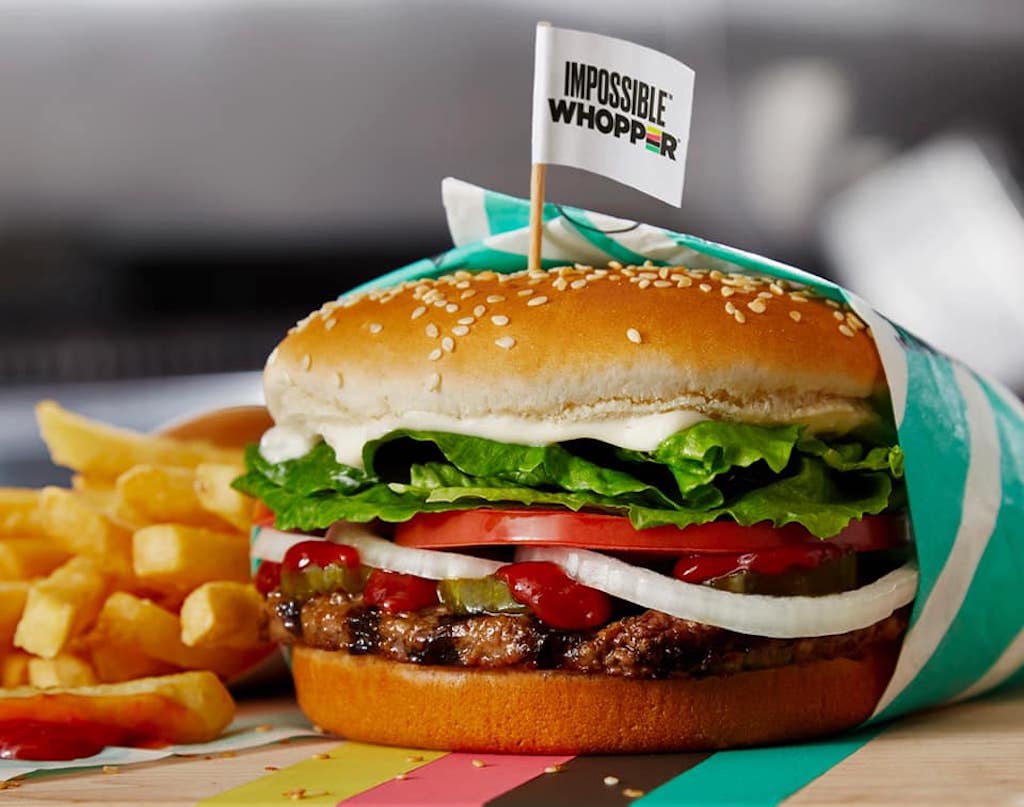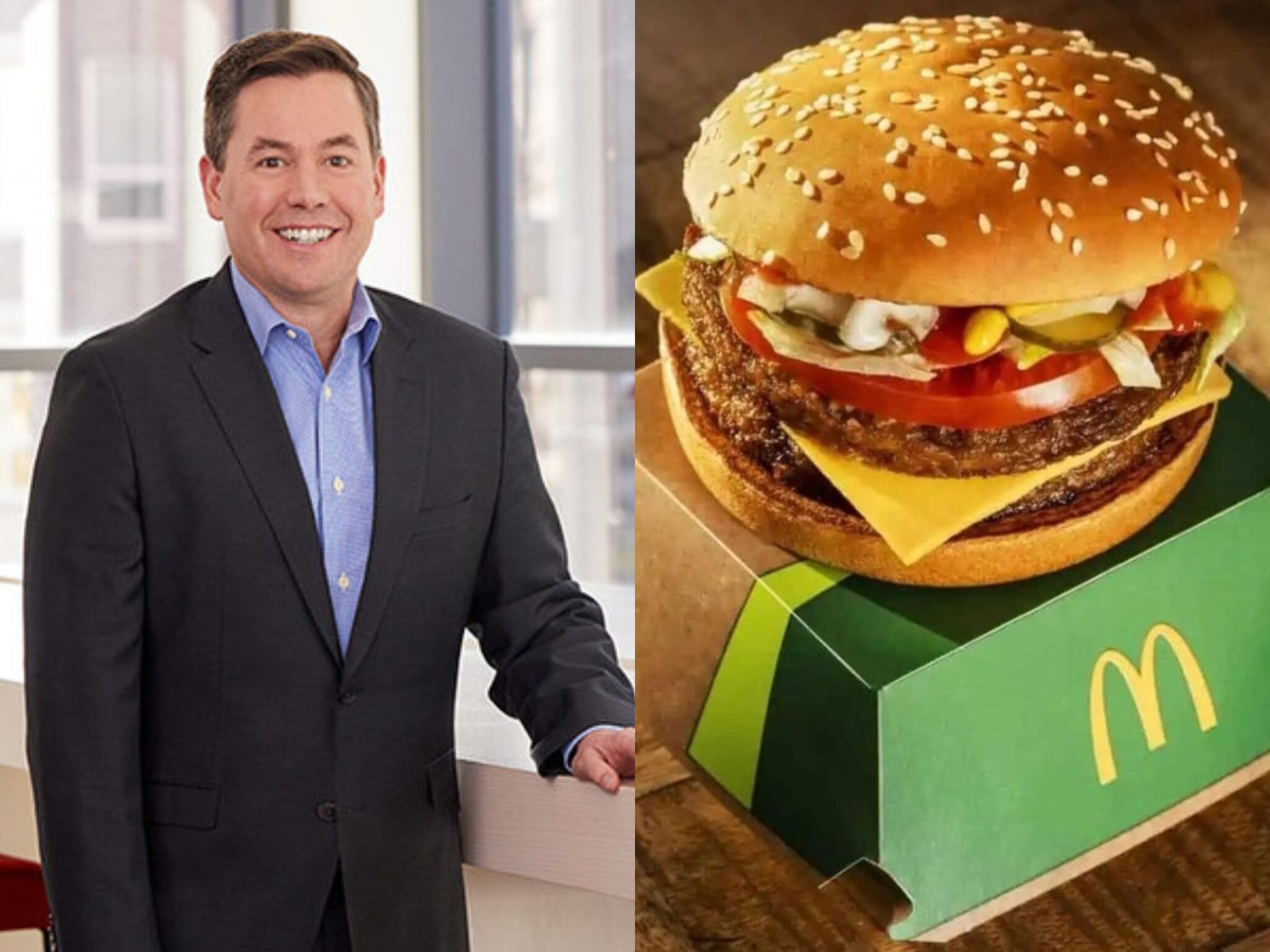6 Mins Read
A McDonald’s executive has said that the McPlant hasn’t been successful in the US, and the company will look to focus on chicken instead of bringing the plant-based burger back.
McDonald’s has no plans to bring back the McPlant in the US for now, after unsuccessful tests in two very different markets, the chain’s US president Joe Erlinger said.
Speaking at the Wall Street Journal‘s Global Food Forum in Chicago yesterday, he suggested that the fast-food giant is focusing on “serving more of what consumers want”.
Asked about when the McPlant would return on the US menu, Erlinger said: “We actually tested the McPlant, and I asked the team to test the McPlant in two very different markets. And so they chose San Francisco and Dallas, and I said: ‘Perfect.'”
But he added: “It was not successful in either market, and so I don’t think the US consumer is coming to McDonald’s looking for the McPlant or other plant-based proteins.”
Erling said this was a trend McDonald’s would “continue to monitor”, but is currently making investments in products with chicken. “The bigger trend around protein consumption is really around chicken, and we think we’re poised to serve that trend well,” he said.
“This isn’t a consumer demand issue, it’s a marketing malpractice one,” argued Jennifer Woollford, founder of marketing community Neon Leaders and co-author of food marketing newsletter Unstuck. She is an industry veteran who has worked in executive roles for Mars and Perfect Day. “Consumer demand has to be created, and that’s the job of marketing.”
McPlant’s lopsided fortunes in the US

McDonald’s US began testing the McPlant – which used Beyond Beef as part of a three-year deal – in 2021 in eight locations. Some stores were recording up to 500 sandwich sales a week, representing around 70 per day. On the back of this success, it initiated a wider rollout to around 600 locations.
But things didn’t pan out the way either company would have hoped, with the expansion resulting in lower per-store sales of the vegan burger. By August 2022, the McPlant was off the menu in America.
This development became more and more surprising as time passed, considering the McPlant’s thriving success outside the US. When it was launched in the UK and Ireland in 2022, it was so popular, McDonald’s introduced a Double McPlant months later.
Successful trials in Germany and the Netherlands also led to a nationwide rollout – the latter saw the fast-food chain add four new vegan products last year (including a McPlant variant), which were listed before beef on the menu.
In fact, Beyond Meat has credited its distribution deal with McDonald’s as a driver of its European growth. The plant-based meat maker’s international sales were up by 18% last year, largely thanks to this partnership in Europe.
Speaking to investors, Beyond Meat CEO Ethan Brown highlighted that the business had witnessed “continued traction at McDonald’s across countries such as Austria, Germany, Ireland, the Netherlands, UK, Malta, Portugal, Slovenia, and Switzerland”.
So why does the McPlant work in Europe? “Firstly, you have a different consumer start-point. This is where plant-based is starting to gain traction, has stronger awareness, and consumers are open-minded to it, so the branding of McPlant can work,” explained Woollford, noting how Burger King’s flagship vegan offering in Europe is called the Plant-Based Whopper.
“Secondly, they are doing some damn good communications,” she said of McDonald’s Europe. “See the ‘Famous Order’ menu being introduced for the first time at McDonald’s Germany and… unique McPlant menus for the rollout. A lot more interesting than a green leaf shoot.”
No McPlant keeps McDonald’s emissions goal in limbo

The difference in the McPlant’s success in the two regions can be attributed to local meat consumption habits. Americans eat three times more meat than the global average, and this is showing no signs of stopping. After all, 74% don’t associate meat with climate change. On the other hand, the number of people following a plant-based diet reached a decade-long low last year.
In Europe, while not a massive improvement, 49% of respondents take sustainability into account when making food choices, and 51% are eating less meat. But in both markets, taste and health are overtaking sustainability as consumption drivers – and barriers – for plant-based foods.
But people are unsatisfied with plant-based options at restaurants, which is evident in the fact that while dollar sales only dipped by 1% in foodservice last year, the only channel buying less vegan proteins was the restaurant industry – fast-food chains spent 10% less on these.
A recent survey suggested that in a restaurant setting, taste (54%) is the biggest reason deterring Americans from choosing meat analogues, followed by texture (42%) and price (33%). The latter is something Erlinger touched upon too when explaining the focus on chicken. “Some of it’s driven by affordability,” he said. “Chicken is less expensive to produce, and so for a consumer that’s looking for more affordable food, chicken is a great option right now.”

Returning to the environmental aspect for a second, McDonald’s focus on increasing chicken products while keeping plant-based at bay does not bode well for the climate. The company will argue that poultry has a much lower footprint than beef, but it’s not as simple as that.
As we previously calculated, in 2021 McDonald’s emissions across its supply chain were 57.4 million tonnes of CO2e, equivalent to 11.2 million homes’ annual energy use and 12.8 million cars being driven for a year, and higher than the emissions of Greece, Peru or Israel. This was a 30% increase from 2017, a striking figure when you consider that the company wants to reduce its emissions intensity (per tonne food and packaging) across its supply chain by 31% by the end of the decade (from 2015 levels).
So for the world’s largest restaurant chain to renege on a product that is much better for the environment – meat emits twice as many greenhouse gases as plant-based foods – is a super size defeat for Big Food’s climate commitments.
What McDonald’s can learn from Burger King

While the Beyond Meat patty was plant-based, the McPlant itself wasn’t in the US (thanks to the addition of dairy cheese). This alienated any vegans who wanted to try the burger, and may have led to its poor sales (especially since the McDonald’s fries in the US aren’t vegan either). In Europe, for example, all McPlants are suitable for vegans.
But then again, fellow plant-based manufacturer Impossible Foods has taken a similar approach with its rival partnership for Burger King’s vegan Whopper, which has cheese and special sauce. The former also supplies to Starbucks for a meatless (but non-vegan) breakfast sandwich. Both these partnerships have been successful.
She credits the success to having a clear target consumer. “With the Impossible Whopper, it’s unmistakable. They are giving Whopper consumers a choice of how to enjoy the delicious promise of a Whopper – be that beef, fish or vegetable.”
Woollford said McDonald’s made two key missteps in the US. The first was a lack of a clear consumer target. “Are they trying to bring new consumers into McDonald’s, or encourage their existing consumers to try plant-based?” she outlined.
The second was the inability to build desirability for demand growth. “The McPlant is at best, boring. At worse, worthy. Let’s remember the average American has never heard the term ‘plant-based’,” she explained. “So what are they expected to feel about a McPlant, especially one with a green leaf on the box? Compare [this] to Slutty Vegan – full of energy, excitement and building an experience out of eating plants.”



